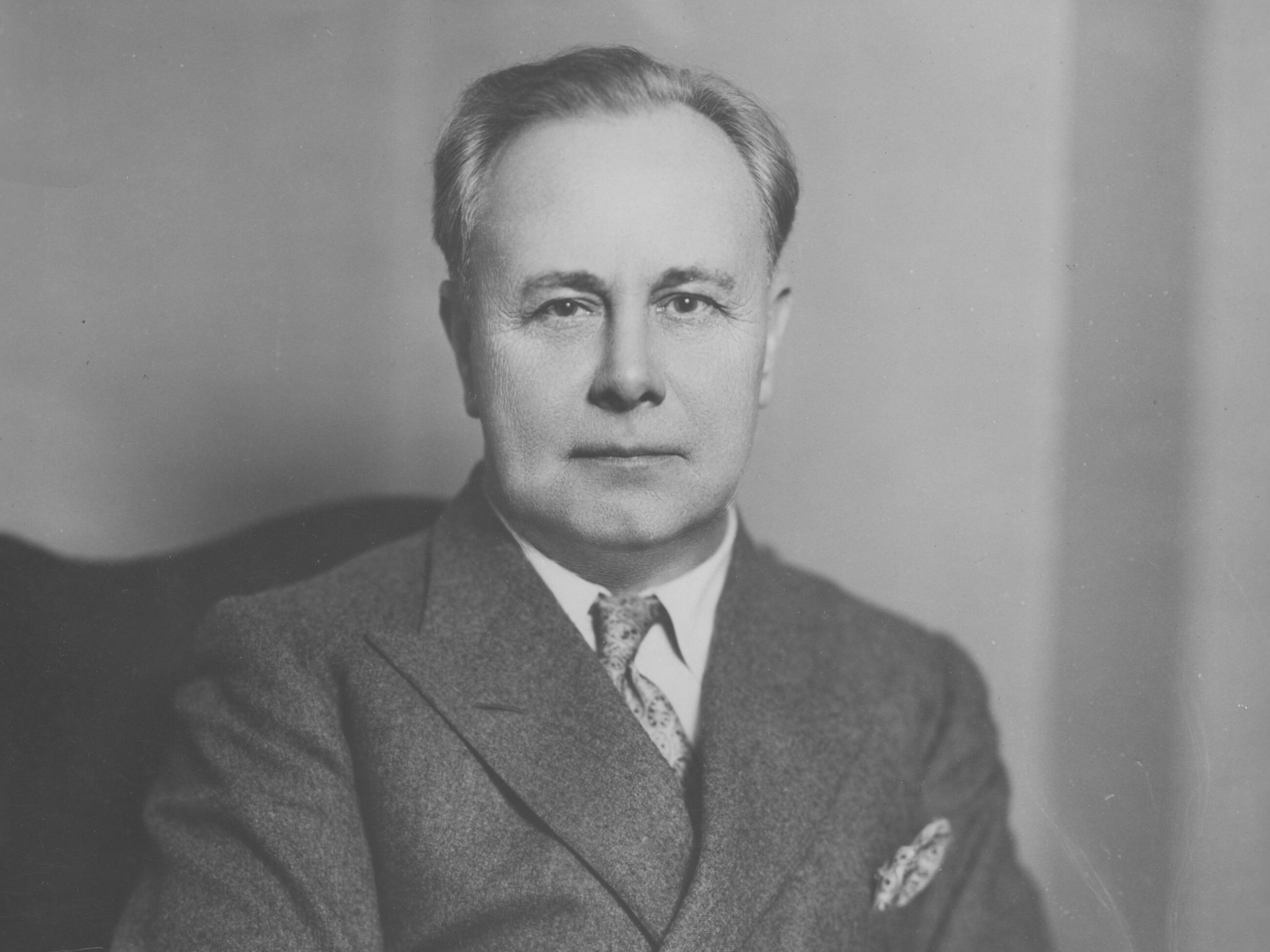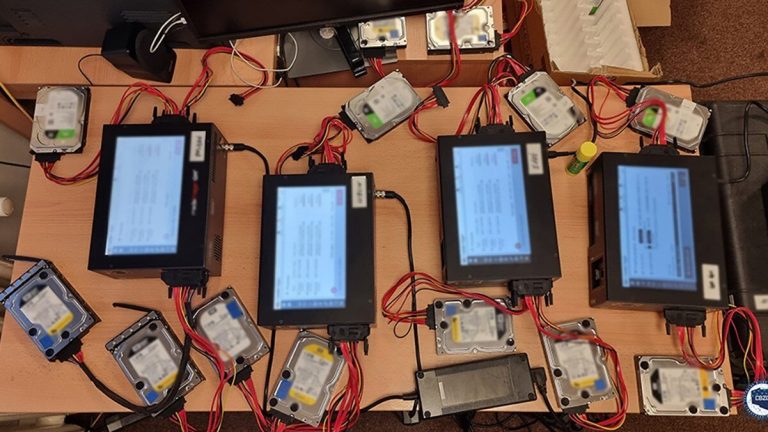A brilliant pianist and inventor. Unjustly forgotten Józef Hofmann

What do shock absorbers for cars and planes, numerous inventions and performances in the world’s most famous concert halls have in common? What they have in common is Józef Hofmann, who comes from Kraków and is one of the greatest pianists of his time and an inventor. Made famous in the world, and almost completely forgotten in Poland.
“Do you remember Józef Hofmann, a boy pianist who was in America? It’s me. While it may seem strange to you that a little boy like me should associate with a genius like you, it is under the impression of one of your great inventions. Four days ago I was in Urania to assist in the demonstration of your new phonograph. There I heard an American singer and a clarinet solo. Involuntarily, I began to think that it was the same as listening to my own playing! (…) Since then I couldn’t find a place for myself and I decided to write you a letter asking if it would be possible to get such an instrument? I have several of my own recordings and therefore I dare to ask you about the price of the phonograph and whether it would be possible to obtain it from your hands” – wrote 13-year-old Józef Hofmann in 1889 to Thomas Edison*.
The answer came quickly. “Mr. Edison read it (letter – ed.) with great pleasure. He was delighted to hear that you had become acquainted with the phonograph, and the fact that you liked it so much was a great satisfaction to him. In his opinion, the phonograph will turn out to be a very valuable tool for you in your musical studies and he asked me to tell you that he will prepare one instrument specially and send it to Berlin to present it to you,” the private secretary of the then famous inventor wrote back to the boy.
The gift was an unusual gesture, because at the same time the Russian Tsar Alexander III and the German Post Administration received the same gift. Edison even had to explain to his accountants later why he sent the boy such an expensive gift.
Wonderful child
Józef Hofmann was born on January 20, 1876 in Kraków. He started learning to play the piano from an early age. Initially, lessons were given to him by his older sister, then by his aunt, and finally his father, also a pianist, took care of the education of the four-year-old. It soon turned out that little Jozio has an extraordinary talent. Already at the age of eight, he performed on Warsaw stages.
“The eight-year-old son of the ballet director, Mr. Hofmann, showed off his playing and compositions in front of Antoni Rubinstein. The master promises a great future for the child” – reported in 1885 “Echo Muzyczne i Teatralne”.
Career was gaining momentum. Just a dozen or so months later, Hofmann faced the European audience – he played in Berlin, Copenhagen, Prague, Paris and London, and the following year – as an 11-year-old boy – he made his debut at New York’s Carnegie Hall. “It wasn’t an extraordinary game for a child, it was an extraordinary game for a man,” said the New York Times critic at the time.
Hofmann did not slow down for a moment and played as many as 52 concerts in the States in 70 days! The pace was so dizzying that the Society for the Prevention of Cruelty to Children intervened. The tour was interrupted, and the young musician received a scholarship of 50,000. dollars, provided that he does not perform in public until his 18th birthday.
The family left for Germany, and the boy focused on his studies. He studied, among others, with the outstanding pianist Anton Rubinstein. A large part of the fortune received was also allocated to mathematics, physics and chemistry lessons. Even then, the artist showed interests that went far beyond the musical world.
The pianist who captivated the crowds
Hofmann returned to the stage in 1894, this time in Hamburg. The following years, already adulthood, were spent on numerous concert tours. At that time, the artist was treated by his fans almost like a rock star, although no one had heard of this genre at that time.
“I was just hoping I wouldn’t get murdered by some jealous girl. They were so crazy that they could do anything. (…) In my front seat, I was almost crushed by people trying to get as close to him as possible. One girl grabbed the other by the throat and choked her because she touched Józef’s back, recalled the pianist’s wife, who accompanied him during his trips.
In 1926, Hofmann received American citizenship. From 1924 he headed the Piano Department at the Curtis Institute of Music in Philadelphia, and from 1927 he was director of the institute. During this time, he became known as a teacher.
Half a century after his debut on the New York stage – in 1937, i.e. at the culmination of the 50th anniversary of performing overseas, Hofmann gave a concert at the Metropolitan Opera, and his performance was considered one of the most famous concerts of the century.
“It is not enough to describe his performances as unimaginable or wonderful. The Polish pianist entered into a creative dialogue with musical tradition and his own earlier performances. He understood music as a message, as a text composed of meanings, and not traces of printing ink on a staff. His genius was expressed in his rebellion against the slavery of the score. It was not about playing correctly, but about something “more”, what is between the notes, and thus about some deep structural correspondence between what was written and what was performed, wrote Łukasz Sochacki about Hofmann in Tygodnik Powszechny.
A brilliant pianist and… an inventor
Concert halls, however, are only part of Hofmann’s life. The other he spent in the workshop. “He knew that God had destined him to play the piano, but if he could have chosen, he would have become an electronics engineer. He was convinced that technology could be used to expand the boundaries of art, said Gregor Benko, co-founder of the International Piano Archives, about the pianist in Tygodnik Powszechny.
The artist has about 70 patents to his credit, although some sources say that there are even more. Hofmann was supposed to create the first constructions as a child. One of his first inventions was supposed to be a response to his own needs – as a small boy he had problems with reaching the piano pedals, so he invented extension cords.
From his youth, apart from music, he was absorbed by cars. “To all concerned, I hereby declare that I, Joseph Hofmann, a subject of the Austro-Hungarian Emperor, residing at Potsdam, Germany, have invented a useful improvement in location-indicating devices,” reads the beginning of the description of the device registered under U.S. Patent No. 909,798, January 12, 1909. a system with tapered maps of different scales that scrolled according to the speed of the car and automatically changed the rotation speed when changing from one scale to another. Thanks to this, drivers could move without any problems both in cities and between them. This invention can be considered as the origin of GPS navigation, which is used by almost every driver today.
Hofmann is also the author of several patents related to various car suspension elements. Shock absorbers according to his design were quite commonly used in cars and planes in the 1940s.
Car wipers and paper clip
The most famous discovery of Hofmann in this area is supposed to be windshield wipers. Apparently irritated by the difficulty of driving a car during rain and snow, he was to present his solution to this problem to Ford engineers, and the inspiration was to be the measured movements of a metronome, a device used to accurately indicate the tempo of a piece of music.
However, attributing the invention to Hofmann is debatable, because already in 1903 Mary Anderson patented manually driven and controlled wipers. But after 17 years – before the invention gained popularity – her patent expired. So Hofmann was probably one of the few people who came up with the idea of making life easier for drivers.
Hofmann is also credited with inventing the treble clef-inspired paper clip to keep sheet music under control. However, in this case, as with wipers, the first patent for this type of invention was filed earlier. Hofmann was also supposed to design and patent, among other things, a house that rotates with the sunlight.
His ideas are still used today
Józef Hofmann proved that it is possible to be both a keyboard virtuoso and a constructor who, through his inventions, improved the musical technique. He devised a new way of installing the piano keys, which allowed them to move with much less resistance, which meant that the instrument was much more subtle. This solution was used by the Steinway company in its instruments and is still used by Hofmann’s successors. He also perfected the system of recording the pianist’s playing on punched tapes, which were then to control the pianola.
Józef Hofmann died on February 16, 1957 in Los Angeles. The life of a pianist and inventor, as Jan Żżarski summed up in his book, “would be enough for a few good film scripts”.
*Correspondence between Józef Hofmann and Thomas Edison has been preserved in the archives of Rutgers University and is quoted by Jan Żżarski in the book “Józef Hofmann. A forgotten genius.






